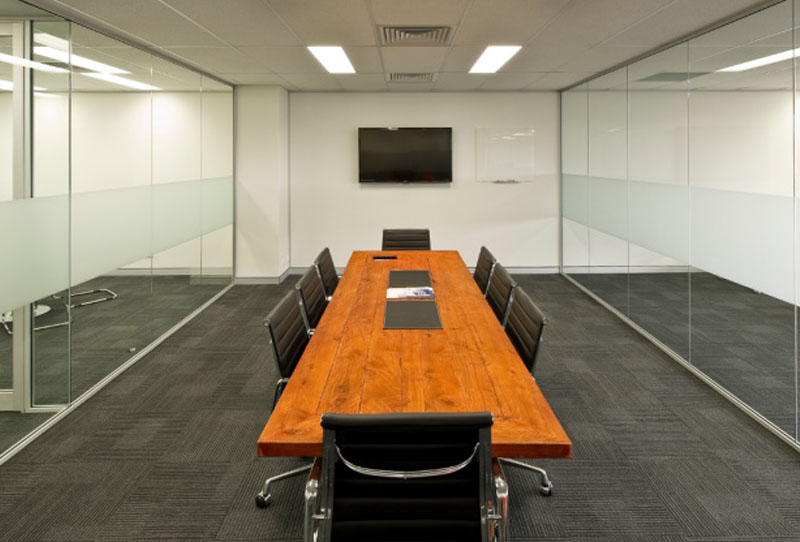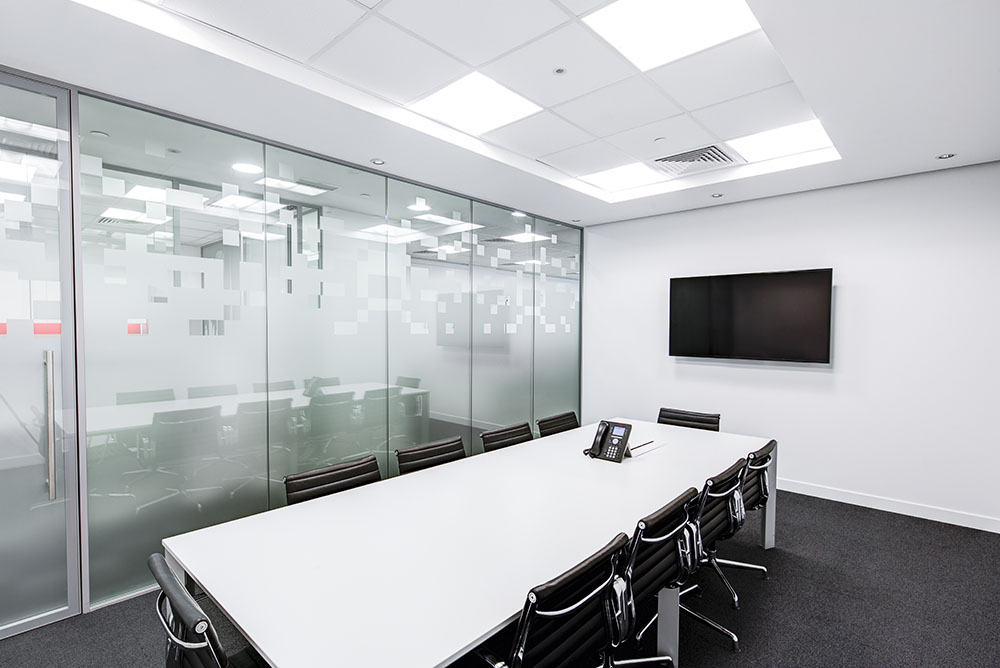
In a previous article titled Suspended Ceilings In An Office: Pros & Cons we covered the basics when it comes to suspended ceilings. This time we’ll go just a bit further and give you some additional tips you may consider when planning your commercial fit-out
Grid ceilings offer dozens and dozens of possibilities when creating a great look for your fit-out. Although they are somewhat cheaper, there are some disadvantages you should be aware of but we’ll get to those a bit later.
Grid vs Suspended Is There A Difference?
A grid ceiling is a suspended ceiling in that is installed below the original ceiling. Grid style ceilings use tiles or panels made from a variety of different textures and looks, like acoustic, vinyl, veneer perspex and several others.
Probably the biggest difference between a grid and traditional suspended ceiling is the look. Generally this kind of ceiling isn’t considered as aesthetically appealing as a non grid ceiling but that too can be a matter of opinion.
Advantages
The biggest advantage of going with a grid ceiling is the ease of repair. Since it is constructed using a series of panels or tiles, you have the flexibility of simply replacing only those tiles or panels that become damaged.
Grid ceilings are also good for hiding electrical wiring, plumbing and other imperfections from view. Should you need to access something it only requires removing only the tiles or panels in that particular area.
Disadvantages
The biggest problem with choosing to go with a grid ceiling is the costs and time involved should you decide to change your decor in the future. A more traditional dropped ceiling as discussed previously in the article Suspended Ceilings In An Office: Pros & Cons, allows for a lot more flexibility to make decor changes.
With a grid suspended ceiling, you will have to replace the entire ceiling of tiles and panels. Again grid ceilings offer a lot of choices in terms of style and function but if you choose this route try choosing a design you can be happy with for awhile.
Grid Style Choices
There are so many options to choose from so we’ll just touch on a few.
Acoustic Tiles
Acoustic grid ceiling tiles are quite popular in commercial fit outs and with good reason. It’s primary feature is to absorb sound which for most office environments is extremely important. Their look is a basic smooth texture with tiny pin holes.
Keeping acoustic tiles clean can be an ongoing issue. Those tiny holes were designed to help block out annoying noise but those holes over time become clogged with dirt. If you wish to keep the noise control consistent you’ll need to clean the tiles regularly. Acoustic tile is also susceptible to mold and bacteria so regularly scheduled cleaning should be a priority if you’re considering this type of tile for your fit out’s grid ceiling.
Vinyl Tiles
If you’re looking for something that’s easy to install and maintain, then vinyl tiles are a useful and affordable option. Vinyl tiles resist bacteria, are waterproof and not easily damaged when used for suspended ceilings. They are also very easy to keep clean with just soap and water.
Timber Veneer
This is an exciting option for grid ceilings if you want the look of beautiful wood. With Timber Veneer your fit-out can have a modern warm look of fine wood in several different colors and wood grain like textures but without the problems you would encounter if you used real wood.
Final Notes
While not as sleek as the look of a suspended ceiling, grid ceilings can easily and quickly give your fit out a fresh new look.
We’ve covered the basics regarding grid ceiling, and the different types you can choose from. Specifically, acoustic, vinyl and timber veneer tile. Hopefully, we’ve provided enough information to point you in the right direction as you plan your office fit out.


